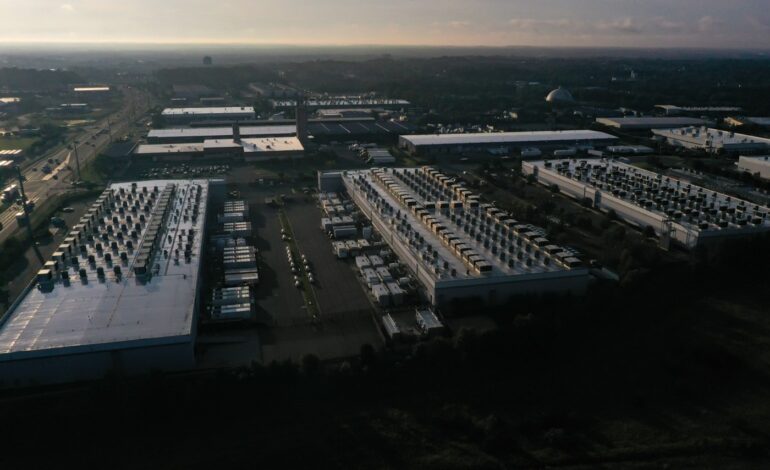Lehigh Valley Prepares for Data Centers Amid Growing Demand

UPDATE: Lehigh Valley is bracing for a surge in data centers as demand skyrockets for cloud computing and artificial intelligence. With the region’s open spaces and robust infrastructure, local officials are moving quickly to prepare for what could become a transformative investment in the area.
Just announced: Amazon Web Services (AWS) has committed $20 billion to develop two major data centers in Pennsylvania—one in Bucks County and another in Luzerne County—highlighting the urgent need for capacity in cloud services. This comes after negotiations for a proposed center at the River Pointe Logistics Center in Upper Mount Bethel Township fell through earlier this summer.
Local communities are taking proactive measures to ensure that the arrival of these data centers won’t disrupt residents. The townships of South Whitehall, Palmer, and Upper Mount Bethel are drafting zoning regulations aimed at minimizing noise and environmental impact. As Becky Bradley, director of the Lehigh Valley Planning Commission, indicated: “There are multiple development sites being pitched to companies that develop these centers.”
Data centers, particularly the hyperscale variety, are essential for powering our digital landscape. These facilities can house thousands of servers and demand substantial energy and water, raising concerns among local residents. In response, municipalities are proposing zoning areas designed to limit building sizes and implement noise buffers, which are critical for community acceptance.
For instance, South Whitehall Township is considering a Planned Innovation, Research, and Technology Overlay District that would impose strict regulations on data centers, including a minimum lot size of 10 acres and a cap of 150,000 square feet on building size. This zoning would also enforce noise restrictions and require dense tree buffers to shield surrounding areas.
Palmer Township’s recently passed zoning amendment similarly allows data centers in its North End Business District while ensuring that size and utility usage are strictly regulated. Township planning director Craig Beavers noted, “Most of Palmer is built out, so we wouldn’t expect a major data center, but if one were proposed, we would have adequate protections.”
The race to establish data centers in Pennsylvania is intensifying, as other states are swiftly aligning their policies to attract such investments. “Speed to market is a decisive competitive factor,” warned Abby Smith, president and CEO of Team Pennsylvania, during a Senate hearing on the matter.
While the push for data centers promises economic benefits—potentially creating hundreds of jobs and local investments—some caution is advised. “It is critical to preserve local decision-making and avoid one-size-fits-all state-defined schemes,” said Holly Fishel, policy and research director for the Pennsylvania State Association of Township Supervisors.
Officials are optimistic about the Lehigh Valley’s potential for a hyperscale campus, but community input and regulation will be crucial in shaping these developments. As technology evolves, future data centers may become more efficient and less demanding on local resources, paving the way for smaller-scale operations that could fit into communities more seamlessly.
As the situation develops, local leaders urge open dialogue with residents to address concerns and misconceptions. Bradley emphasized the importance of “supporting logical conversations and not hysterical ones” regarding the future of data centers in the Valley.
Stay tuned for more updates on this rapidly evolving story that could redefine the Lehigh Valley’s economic landscape.






